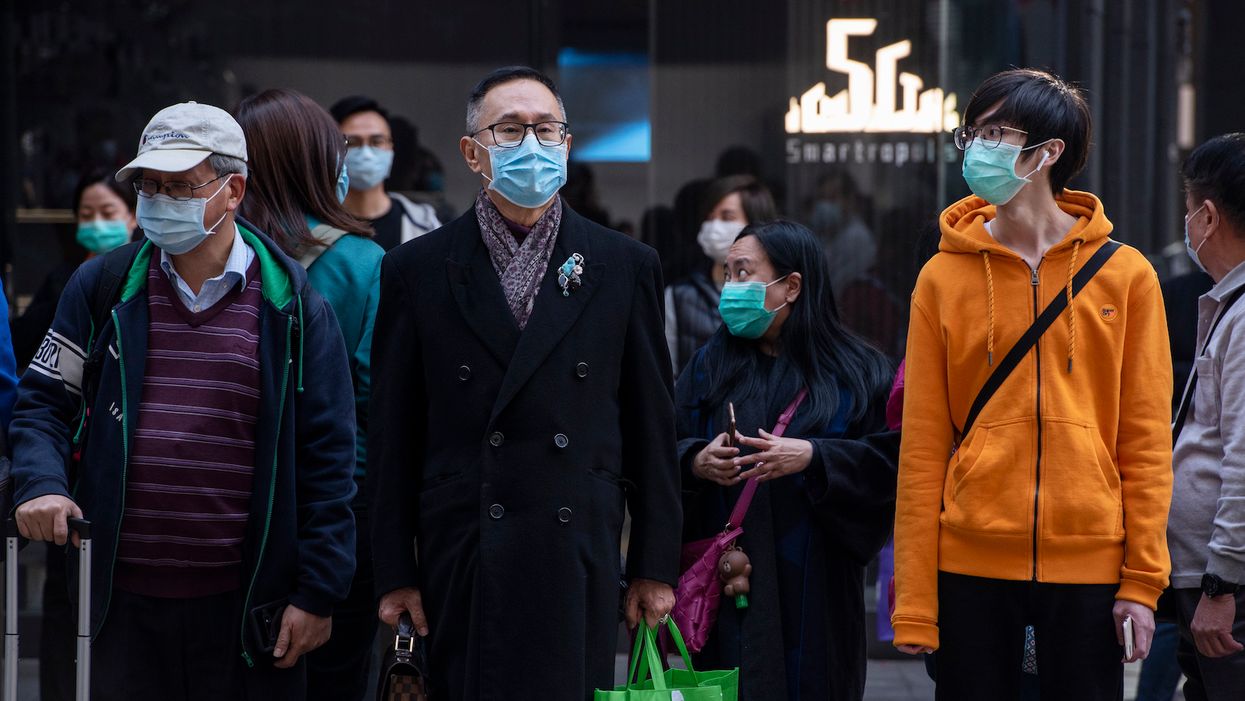
Miguel Candela / Echoes Wire/Barcroft Media via Getty Images

'The Chinese people do not welcome those media that speak racially discriminatory languages'
China has expelled three Wall Street Journal reporters in response to an opinion article the outlet published titled, "China is the Real Sick Man in Asia" — even though none of the reporters being punished had anything to do with the article, the Los Angeles Times reported.
Chao Deng, Josh Chin, and Philip Wen were given five days to leave the country after having their press card revoked by the government. Chao had been on the ground in Wuhan covering the extent of the coronavirus outbreak and how it was impacting the lives of residents.
Chinese spokesman Geng Shuang said the WSJ headline was an insult to China's efforts to fight coronavirus, and said it carried racist connotations.
"The Chinese people do not welcome those media that speak racially discriminatory languages," Geng said.
The Times explained the background of the "sick man" reference, and why it could be viewed with particular offense by China:
The term "sick man of Asia" was a reference to Qing Dynasty China in the late 19th and 20th centuries, when it suffered both internal divisions and imperial exploitation from both Western countries and Japan, and eventually collapsed.
The phrase mirrors the "sick man of Europe" term used to describe the Ottoman Empire in decline. "Sick man" has been commonly used in Western media to describe other countries in crisis, including the United States.
But in China, the "sick man" phrase has also been read as a derogatory description of Chinese people as inherently inferior, disease-ridden beings.
The Feb. 2 opinion piece was written by Walter Russell Mead, a professor at Bard College, and explored the financial and medical impact of coronavirus.
The headline probably wasn't the only — and possibly not even the primary — reason China decided to punish the American journalists. One day before the expulsion, the U.S. State Department designated five Chinese state-run media organizations as "foreign missions." All five outlets have significant U.S. operations, and the designation will require them to report personnel and property ownership to the State Department.
Geng expressed China's disapproval with the move.
"Media play an important role like a bridge or bond facilitating communication and understanding. ... We urge the U.S. to discard its ideological prejudice and Cold War zero-sum game mentality, and stop ill-advised measures that undermine bilateral trust," he said Wednesday, according to the Times.
China has a history of stirring up nationalism and anti-Western feelings in the country to distract from crises, the Times noted, and the Journal writers' expulsion is very likely intended as a warning to other foreign media outlets that, if their work does not meet the approval of the Chinese government, they may face they same fate.
The Wall Street Journal issued a statement in response to China's expulsion of its reporters.